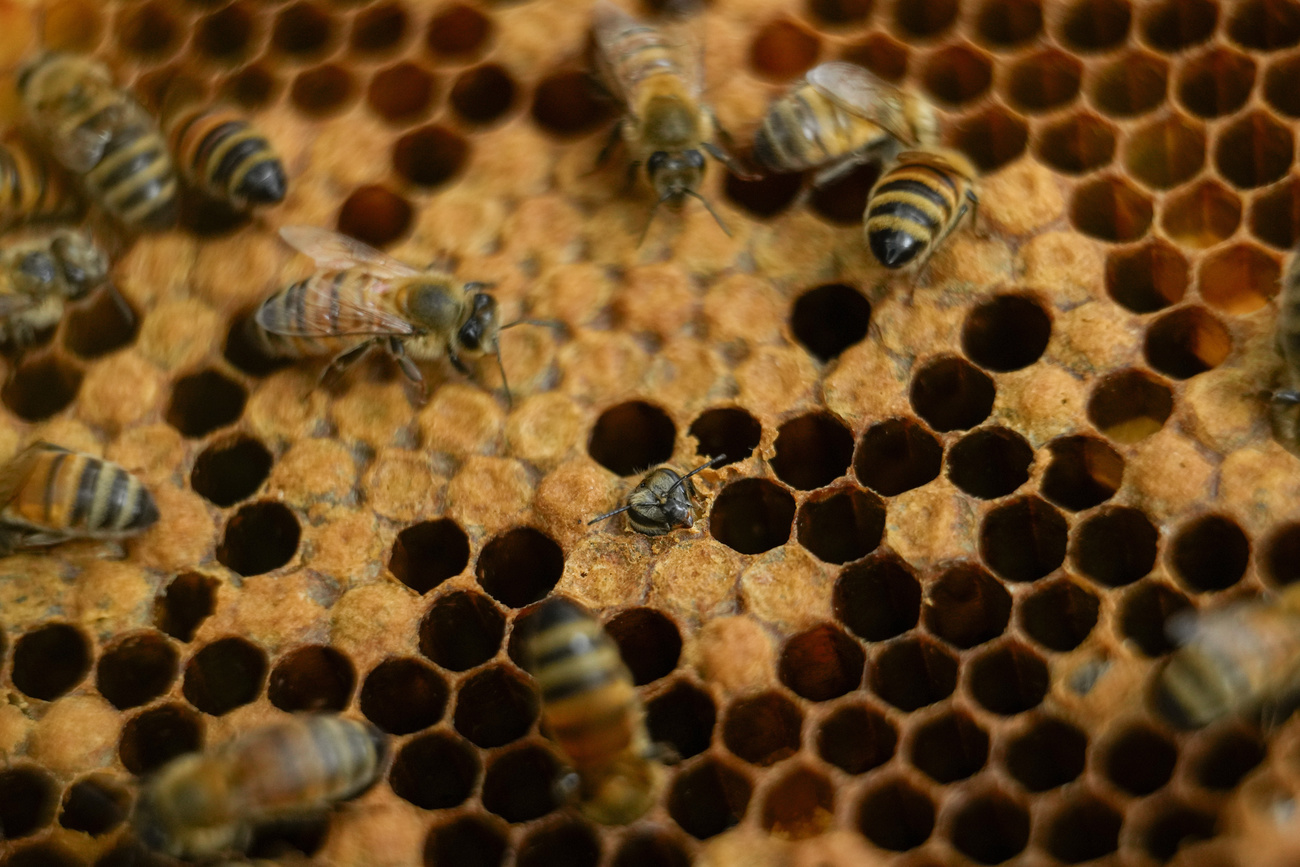
Bees produce nutrients for their gut bacteria

According to a Swiss study, bees themselves produce the ingredients needed by a certain type of intestinal bacteria when these are lacking in their diet.
This newly discovered mechanism could play a role in understanding how vulnerable bees are to climate change, pesticides or new pathogens, according to a press release by the Federal Instittue of technology in Lausanne (EPFL) and the University of Lausanne (UNIL).
For the study published this week in the journal Nature Microbiology, the researchers raised bees without intestinal bacteria and fed them sugar water exclusively. By examining the bacteria present in the bees’ intestines, the researchers unexpectedly discovered the presence of the bacteria Snodgrassella alvi. This bacteria cannot metabolise sugar in order to develop.
+ All bee colonies in Switzerland are sick, warns specialist
The fact that it colonised the bees’ intestines even when sugar was the only food and no other bacteria were present initially puzzled the researchers. Intestinal bacteria normally feed on substances present in food.
By measuring the products of metabolism in the bee’s intestine, the scientists found that the bee produces several acids, including citric acid and malic acid, which are transported in the intestine. When Snodgrassella alvi bacteria were already present, the bees produced fewer of these acids.
Link to understanding vulnerability
Using specially marked atoms, the researchers were able to prove that the intestinal bacteria were indeed fed with these acids. According to the researchers, the vulnerability of bees could be linked to this complex system of the intestinal microbiome.
“We already know that contact with the herbicide glyphosate makes bees more vulnerable to pathogens and reduces the abundance of S. alvi in the gut,” said study leader Andrew Quinn, from UNIL, quoted in the press release.
The authors therefore hope to study the intestinal microbiome of bees in greater detail in other studies.
This news story has been written and carefully fact-checked by an external editorial team. At SWI swissinfo.ch we select the most relevant news for an international audience and use automatic translation tools such as DeepL to translate it into English. Providing you with automatically translated news gives us the time to write more in-depth articles. You can find them here.
If you want to know more about how we work, have a look here, and if you have feedback on this news story please write to english@swissinfo.ch.

In compliance with the JTI standards
More: SWI swissinfo.ch certified by the Journalism Trust Initiative




























You can find an overview of ongoing debates with our journalists here . Please join us!
If you want to start a conversation about a topic raised in this article or want to report factual errors, email us at english@swissinfo.ch.